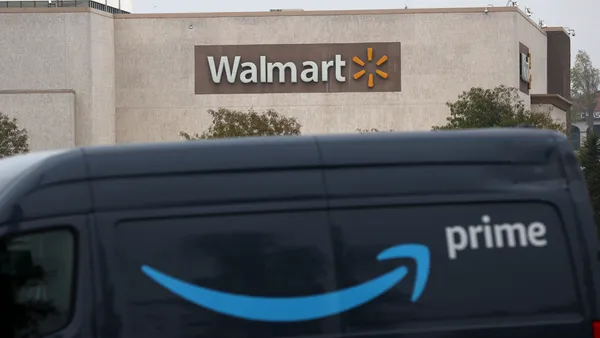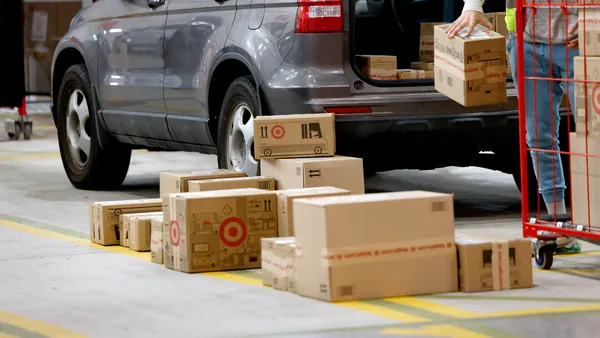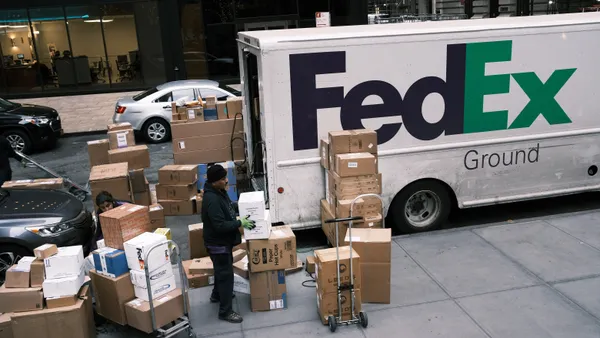With the busy holiday season just around the corner, shippers may feel it’s already too late to ensure deliveries arrive in time enough to meet customers’ needs.
But for those who haven’t started preparations yet, that might not be the case, although it should be a priority, logistics experts said during Wednesday’s live stream event “Insights Into the 2024 Holiday Shopping Season,” co-hosted by Supply Chain Dive, Retail Dive and Marketing Dive.
Right now, priorities should focus on carrier capacity, contingencies for service disruptions and long-term planning to establish relationships, so timely deliveries and equitable rates can carry through into the new year, the experts say.
When speaking with shippers today, conversations shouldn’t just just be about peak season, said Ninaad Acharya, co-founder and CEO, Fulfillment IQ, but “the broader outlook going into 2025.”
Acharya pointed to sweeping operational shifts in the U.S. Postal Service, which has led to on-time delivery problems for the financially struggling agency, adding it’s important to start considering contingency plans to avoid disruption. This could involve capacity planning and sharing shipping data with carriers, detailing your needs and expectations, he said.
While it’s important to think long-term, the focus on the present shouldn’t be lost, according to Jonathan Hessney, founder of OnRout, especially with peak season surcharges already implemented by FedEx, UPS and DHL.
“FedEx and UPS already are double-dipping on peak surcharges this year,” Hessney said.
But there is some uncertainty about the 2024 peak season fueled by a shorter holiday shopping period and a persistently weak freight market, he said. If the latter is the case, it could create opportunities for shippers to negotiate a discount on surcharges on the promise of more volume.
“I wouldn’t be surprised if they’re more open to it because they are trying to double-dip on both sides,” Hessney said.
A key to controlling shipping costs is predicting demand, which can have a range of influences including must-have holiday items that could cause a late volume spike. Hessney said shippers should avoid waiting until the last-minute to make arrangements with carriers because it could mean higher costs.
Shippers should also spread out promotions throughout the peak season to avoid delivery delays, according to Hessney.
“So as much as you can influence the marketing guys on being able to spread out peak, please, please, do that,” he said.
Even if a volume spike occurs late in the peak season, Acharya expects 2024 to be a “normal-esque peak coming in right from a general volume standpoint.”
In terms of capacity, both Acharya and Hessney think it’s not a big issue. Acharya said in general, capacity is in good shape. While Hessney said, “Capacity is probably fine. If you want to ship the day before Christmas, it may be a little problematic.”
Delivery problems are still likely even with adequate capacity, Hessney said. He advised shippers to have contingency plans as “little issues are going to pop up” and it's best to be prepared.
“I’m sure you’re going to see some failures here and there,” he said. “It’s just not going to be a widespread mess.”














